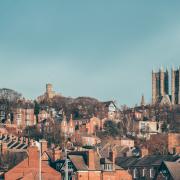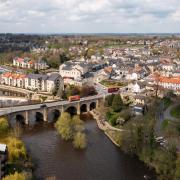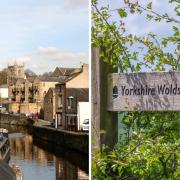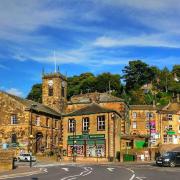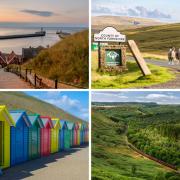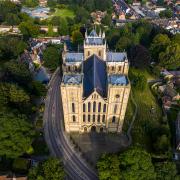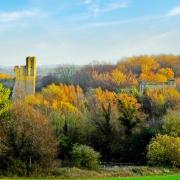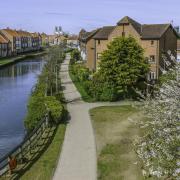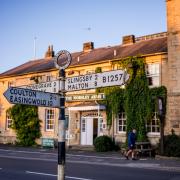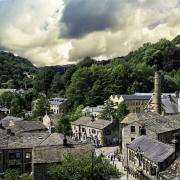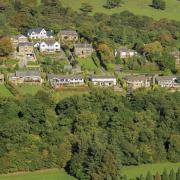Sheffield is one of the greenest cities in Europe and has been called the largest village in England. But it’s rarely been called beautiful.

John Ruskin is reputed to have described it as a ‘dirty city in a golden frame’, dismissing the Victorian urban sprawl as aesthetically inferior to the verdant countryside which surrounded it. Today, however, Sheffield is a vibrant, modern city, virtually unrecognisable from its polluted 19th century counterpart. Yet, with a landscape that continues to reflect its industrial past and a skyline that features Park Hill, one of the UK’s most famous Brutalist mega structures, much of the city still challenges traditional ideas of the picturesque.
But the Sheffield cityscape is about to change again with the rise in 2015 of the £55m Olympic Legacy Park on the site of the old Don Valley Stadium, where the city’s golden girl Jessica Ennis-Hill used to train.
The first phase of the redevelopment – a joint venture between Sheffield Hallam University, Sheffield Teaching Hospitals, Sheffield City Council and the private sector – is already underway with the building of a new school for children aged two to 16 (the primary phase is due to open in September; the secondary a year later) and Sheffield’s second University Technical College, specialising in human sciences and digital technologies.
Other key elements of the Legacy Park will be a £6m stadium for Sheffield Eagles; an Advanced Wellbeing Research Centre (AWRC), a state-of-the-art facility for the design, research, evaluation and implementation of products linking the medical, leisure and sports sectors; and a sustainable, multi-purpose indoor community arena, which will be home to Sheffield Sharks basketball team and will have three full-size courts and seating for up to 3,000 people.
Olympic Legacy Park project leader Richard Caborn said: ‘We are taking the city’s heritage into a modern setting. This project has three clear objectives. We will deliver a multi-sports community stadium which can accommodate professional sports. Through the AWRC, we will bring academia, the medical profession and the full spread of physical activity across the city, from sedentary lifestyles to elite and professional athletes. In the words of Lord Coe, Sheffield will undertake world-class research and provide services that will deliver long-term, systematic change to benefit the health of the nation.
‘And finally, we will deliver knowledge, intellectual property and practical development of products and services to the wealth creating sectors of health, wellbeing and sports within the Sheffield city region.’
Ian Anniss, Sheffield Eagles’ director of community, development and education, said the Legacy Park project was an outstanding testament to what can be achieved by genuine partnership working.
‘The new stadium will be like no other in this country,’ he added, ‘in that it will be designed and managed to have multiple uses that reflect the needs of the broader community as well as being a top class facility for professional rugby of both codes.’
The development also offers a unique opportunity for the city to become a market leader in health and wellbeing on a national, and perhaps international, level.
‘The commercial opportunities around the whole wellness agenda and its associated technologies are possibly one of the biggest opportunities Sheffield has seen for years,’ said Richard Wright, executive director of Sheffield Chamber of Commerce. ‘In many ways it’s one of the legacies of our investment in sport in the region. The city now has over 100 sport or activity-related businesses and by linking that expertise to health we can be one of the best cities in the world for improving the health of a population. ‘We, as a chamber, cannot think of a more fitting use for the site of the Don Valley Stadium.’
The Olympic Legacy Park will begin to make its mark on the cityscape later in 2015. In the meantime, a new exhibition at the Millennium Gallery is reassessing the value of Sheffield’s urban vistas and exploring how the region’s geography has shaped the city and its people.
Picturing Sheffield: The Life of a City takes visitors on a journey through Sheffield past and present, featuring more than 90 evocative depictions by artists including JMW Turner, Godfrey Sykes, John Hoyland, Bill Brandt, Linda Benedict-Jones and Joe Scarborough.
It brings together a host of paintings, photographs and works on paper to chronicle the changing face of the city over 250 years. From the development of industry to the lost landmarks that linger in the collective memory, the exhibition explores the relationship between Sheffield’s landscape and its inhabitants, and looks at how beauty is often found in the most surprising and unexpected places.
It features representations of the city from the 1700s to the present day, including historical works like JMW Turner’s celebrated View of Sheffield from Derbyshire Lane (1797); Thomas Creswick’s Hillsborough, Sheffield (1800s); and William John Stevenson’s River Don at Wardsend (1875).
The exhibition also showcases a range of striking 20th and 21st century views of the city, including John Hoyland’s Backyards, Sheffield (1950); Jack Kettle’s Rebuilding a Blast Furnace (1964-65); Linda Benedict-Jones’ photograph Kelvin Flats (1978); The Egg Box (2007) by Jonathan Wilkinson; and Mandy Payne’s Paradise Lost (2014).
‘Picturing Sheffield is a celebration of the city, past and present,’ said Louisa Briggs, exhibition curator for Museums Sheffield. ‘From scenic panoramas through to frank social commentary, the works in the exhibition show the diverse ways artists have reflected Sheffield’s unique character and revealed the beauty in the urban landscape.’
Picturing Sheffield: The Life of a City runs at the Millennium Gallery in Arundel Gate from November 29th to April 12th. Entry to the exhibition is free. For details, visit museums-sheffield.org.uk.




